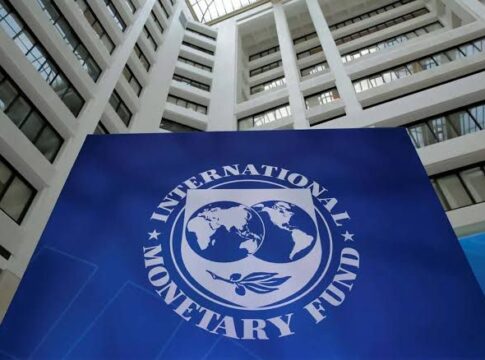Global economic growth is set to improve slightly in 2025, with the International Monetary Fund (IMF) projecting a 3.3% expansion, up by 0.1 percentage points from its previous forecast.
The IMF’s latest World Economic Outlook signals optimism but warns of potential disruptions from rising protectionist policies.
IMF Chief Economist Pierre-Olivier Gourinchas emphasized the growing divergence among countries. “While the global outlook remains broadly unchanged, the gaps across economies are widening,” he noted in a blog post on Friday.
The United States saw its 2025 growth forecast upgraded significantly to 2.7%, reflecting resilience in the world’s largest economy. In contrast, the Eurozone’s projection dropped by 0.2 percentage points to 1%, signaling challenges ahead for the bloc. Emerging markets, particularly in sub-Saharan Africa, offer a brighter outlook, with growth expected to climb to 4.2% in 2025.
Inflation and Trade Projections
Global inflation is projected to decline steadily, reaching 4.2% in 2025 and 3.5% in 2026. The IMF noted that this trend could pave the way for central banks to normalize monetary policies, easing the economic pressures of recent years. However, trade forecasts paint a less optimistic picture, with world trade volumes expected to slow due to rising trade policy uncertainty.
“Unilateral policies like tariffs or subsidies rarely offer sustainable economic advantages,” warned Gourinchas. The IMF highlighted that protectionism could further disrupt supply chains, lower investments, and reduce global market efficiency.
A Fragile Recovery Amid Geopolitical Tensions
The report comes as global leaders face mounting economic challenges, including geopolitical tensions and domestic policy uncertainties. With inflation easing, many countries are expected to capitalize on this opportunity to strengthen their economies, but risks of trade wars remain a pressing concern.
The IMF cautioned against a resurgence of tariffs or non-tariff barriers, which could undermine global recovery efforts. As Gourinchas concluded, “Collaborative policies are crucial to building resilient and inclusive economies in this volatile era.”




